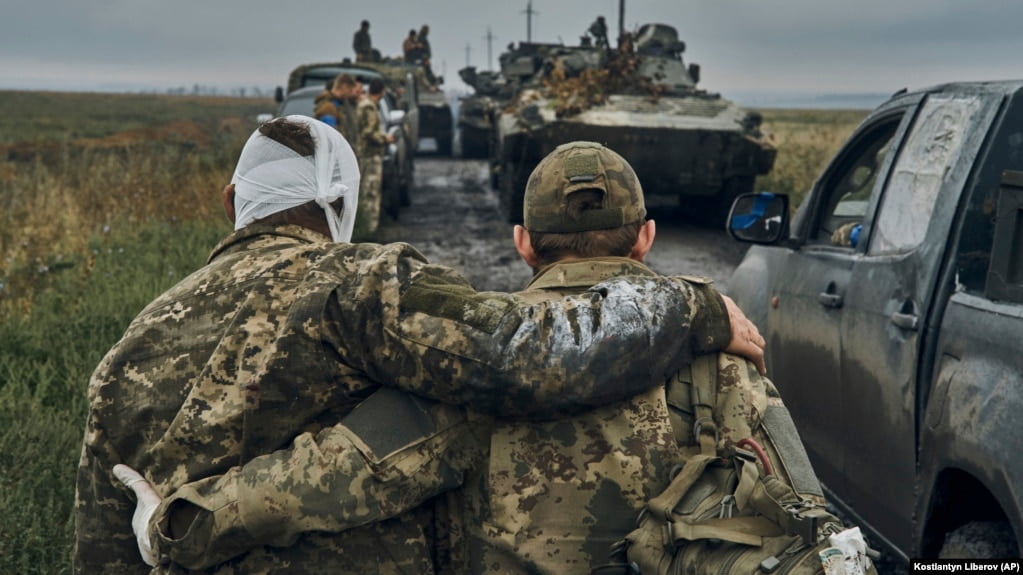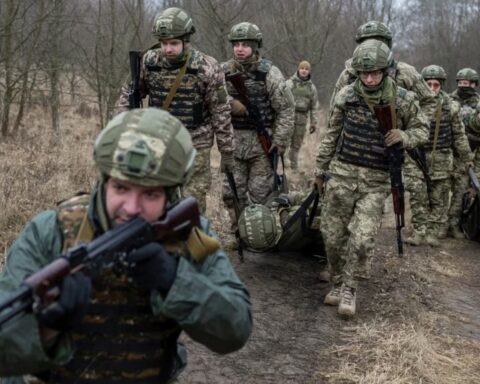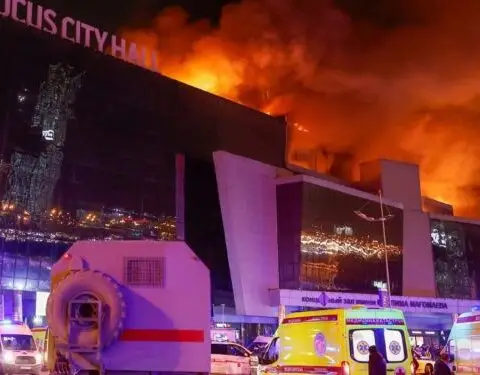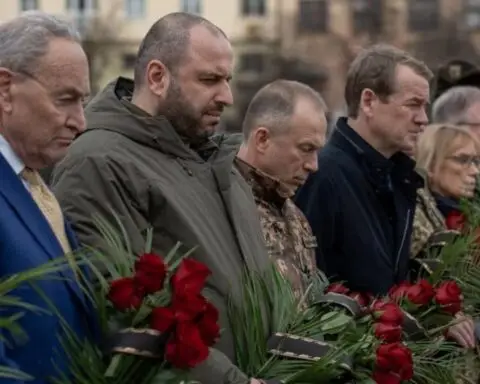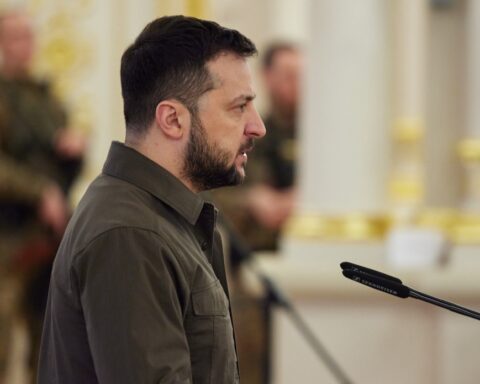Ukraine’s military has recaptured 6,000 square kilometers from Russia in a counteroffensive this month, President Volodymyr Zelenskiy said, while calling on the West to slap more sanctions on Moscow and speed up deliveries of weapons systems to allow Ukrainian troops to consolidate control over the regained territory.
“Since the start of September, our soldiers have already liberated 6,000 square kilometers of Ukrainian territory in the east and south, and we are moving further,” Zelenskiy said in his nightly address.
Six thousand square kilometers is about the equivalent to the combined area of the West Bank and Gaza.
“Strengthen sanctions — an eighth EU sanctions package is needed,” Zelenskiy said. “It is necessary to increase aid to Ukraine, first of all to speed up the provision of air-defense systems to our country.”
Russia-imposed official Vitaly Ganchev said earlier on September 12 on Russia’s state-run Rossia-24 that Ukrainian troops had retaken previously Russian-held areas in the north of Kharkiv, breaking through to the border with Russia, and that “about 5,000” civilians had been evacuated to Russia.
According to Ganchev, the Ukrainian military outnumbered Russian forces by 8-to-1 during the Ukrainian counteroffensive in the region that began last week.
Ganchev said “the situation is becoming more difficult by the hour,” adding that the border with Russia’s Belgorod region was now closed.
His unconfirmed comments came after the Ukrainian military overran the key Russian supply hubs of Izyum and Kupyansk, where the Kharkiv region’s Russia-installed administration had been based.
After Russia’s Defense Ministry published a map showing that Russian forces had almost entirely abandoned the Kharkiv region, the British Defense Ministry said in its latest intelligence bulletin on September 13 that one of Russia’s most prestigious armored units was among the ones withdrawn from Kharkiv.
The unit that was pulled back from Kharkiv, the 1st Guards Tank Army (1 GTA), British intelligence said, had already suffered severe losses in the early phase of the invasion.
“The 1st GTA had been one of the most prestigious of Russia’s armies, allocated for the defense of Moscow, and intended to lead counterattacks in the case of a war with NATO,” British intel said.
“With 1 GTA and other Western Military District (WEMD) formations severely degraded, Russia’s conventional force designed to counter NATO is severely weakened,” the bulletin said, adding, “It will likely take years for Russia to rebuild this capability.”
WATCH: Russian artillery litters the fields in areas of the Kharkiv region that Ukrainian troops have taken back in the last few days. Ukrainian soldiers have posted videos of themselves raising Ukrainian flags on buildings and being greeted by grateful residents.
Ukrainian troops have shared videos of themselves raising Ukrainian flags on buildings in the Kharkiv region and being greeted by grateful residents. Some of the videos show pieces of Russian artillery and tanks left behind by fleeing troops.
But as Ukrainian troops push the counteroffensive, there were fears that it could trigger an even more violent response from Moscow. Russia already launched missile attacks that hit key civilian infrastructure, according to Ukrainian officials.
Problems with electricity and water were reported on September 11 in the Kharkiv, Sumy, Poltava, Zaporizhzhya, and Dnipropetrovsk regions, potentially impacting millions of people.
The city of Kharkiv lost water and electricity supplies due to renewed Russian shelling.
“The situation from last night has been repeated. Due to shelling, critical infrastructure facilities have been put out of action, and as a result, power has gone out in Kharkiv and the water supply was cut off,” Mayor Ihor Terekhov said on Telegram.
By early on September 12, Kyiv authorities said electric power and water supplies had been restored to some 80 percent in the Kharkiv region.
EU foreign policy chief Josep Borrell discussed the success of Ukraine’s counteroffensive with Ukrainian Foreign Minister Dmytro Kuleba on September 12.
EU support will continue, Borrell said on Twitter.
“Our strategy is working: help Ukraine fight back, put pressure on Russia with sanctions and support partners around the world,” Borrell said.


